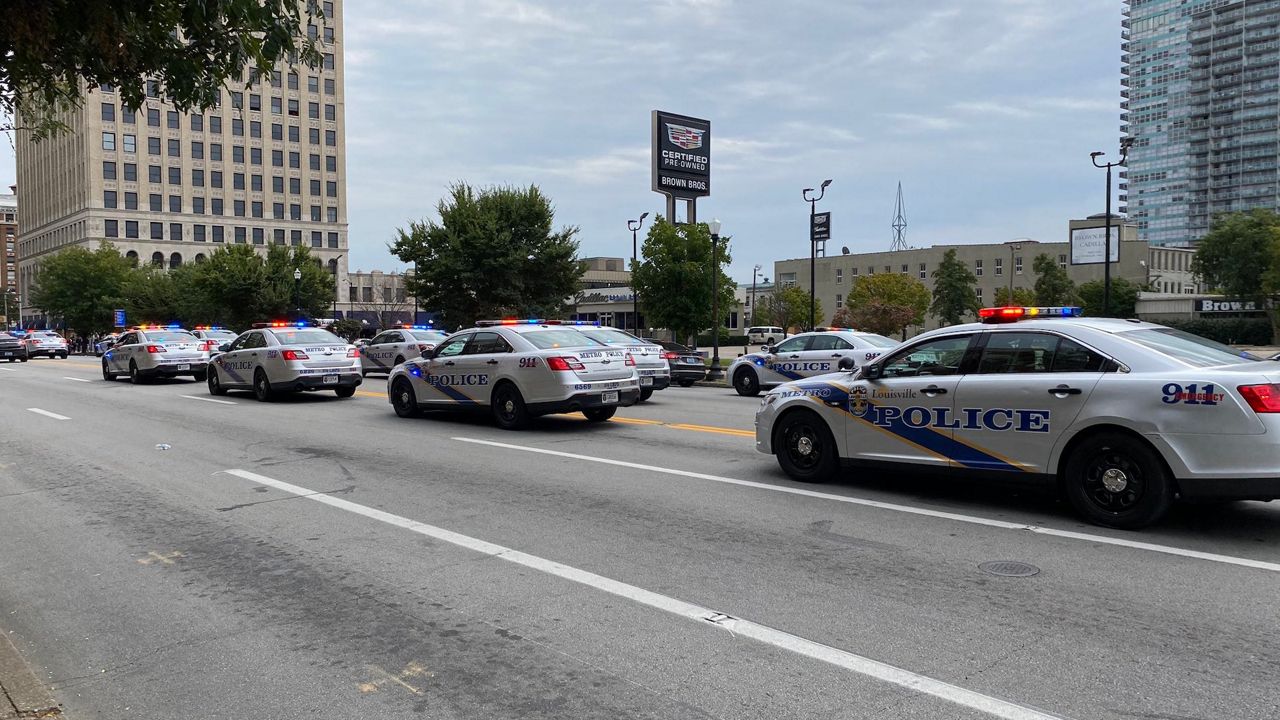LOUISVILLE, Ky. — More than five months since they first became eligible to receive COVID-19 vaccines, a little over a third of Louisville Metro Police Department employees have reported getting their shots, Mayor Greg Fisher’s office said this week.
The actual percentage of vaccinated officers may be more than the 34% who have told the city they’re protected against COVID-19 since reporting is voluntary, Fischer spokesperson Jessica Wethington said.
“We do think the numbers are a little higher,” she said in an email.
At 34% vaccinated, LMPD has the second-lowest vaccination rate among the 19 Metro government departments for which the city provided statistics. The only department trailing LMPD is Fleet and Facilities, which manages Metro Louisville’s vehicles and buildings.
Only one department — Economic Development — has a 100% vaccination rate, according to the city’s numbers. Wethington said she believes the mayor’s office, which has a 97% rate according to the self-reported stats, is also at 100%.
The 34% vaccination rate for LMPD also trails many major departments around the country, according to numbers obtained by the Washington Post. The paper reported last week that police forces in cities such as Honolulu, Denver, Boston, Baltimore and Washington, D.C., are more than 50% vaccinated. Cities such as Columbus, Ohio, and Phoenix both trail Louisville.
Requests for comments from LMPD and the River City FOP were not returned.
Last week, Fischer suggested that police demographics are one reason vaccinations may be lagging. “Most of our LMPD officers are in the 20 to 40 age cohort that we’re having difficulty getting vaccinations with,” he said. National polling shows that adults in that age group are among the least eager to get vaccinated. Men are also less likely to get vaccinated, according to state numbers, and LMPD is 85% male.
Asked last week if police officers have a unique responsibility to get vaccinated given the high-contact nature of their jobs, Dr. Sarah Moyer, director of the Louisville Metro Department of Public Health and Wellness, said all people have a responsibility to get vaccinated.
But others argue that police should feel a greater obligation to be vaccinated against COVID-19.
“There is touching if they are arresting somebody and they’re approaching people to talk to them with car windows down all the time,” said Sharona Hoffman, professor of law and bioethics at Case Western Reserve University School of Law in Ohio. “Because that is a high-contact job, they should feel a sense of responsibility to be vaccinated.”
There is, however, no legal obligation for police officers, or most anyone else, to be vaccinated against COVID-19. Hoffman said that means police vaccinations are more of an “ethical” responsibility.
Vaccinations would also protect more police officers from suffering the consequences of COVID-19. Last year, the illness was the leading killer of police in the U.S., according to the National Law Enforcement Officers Memorial and Museum.



